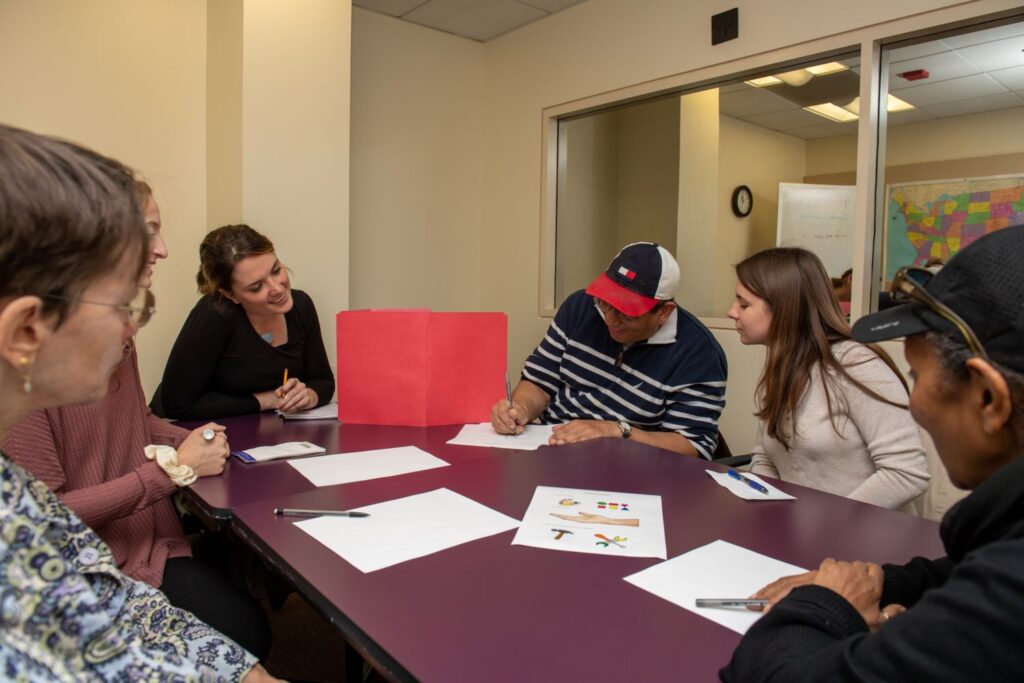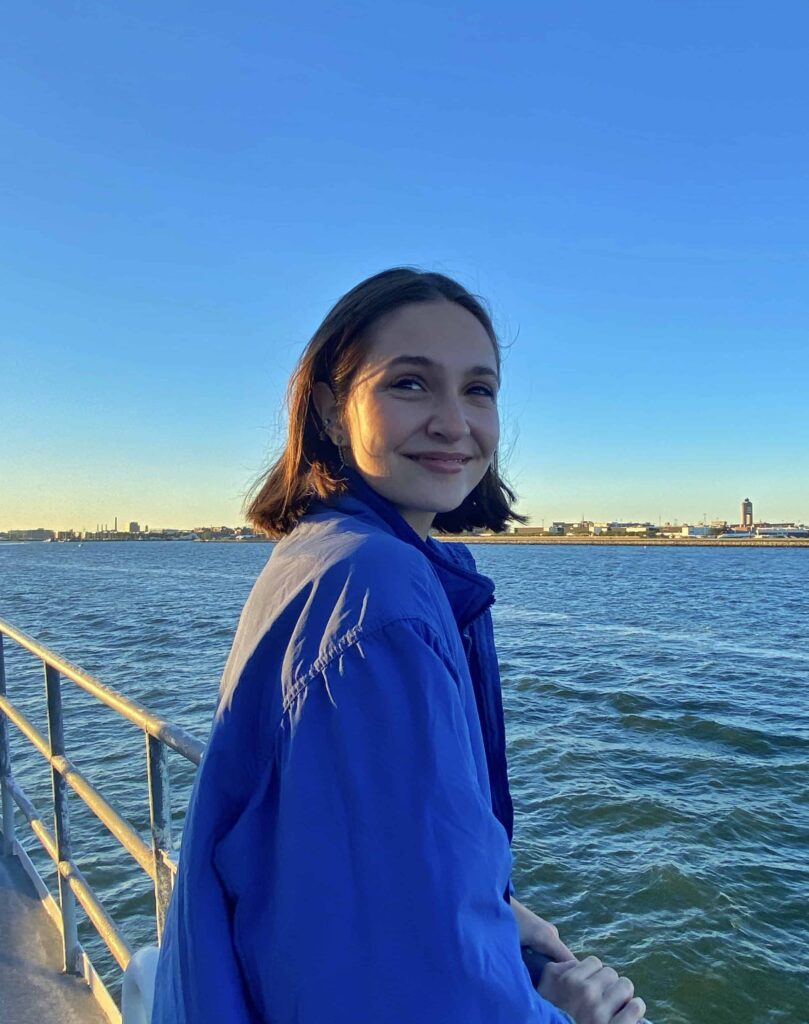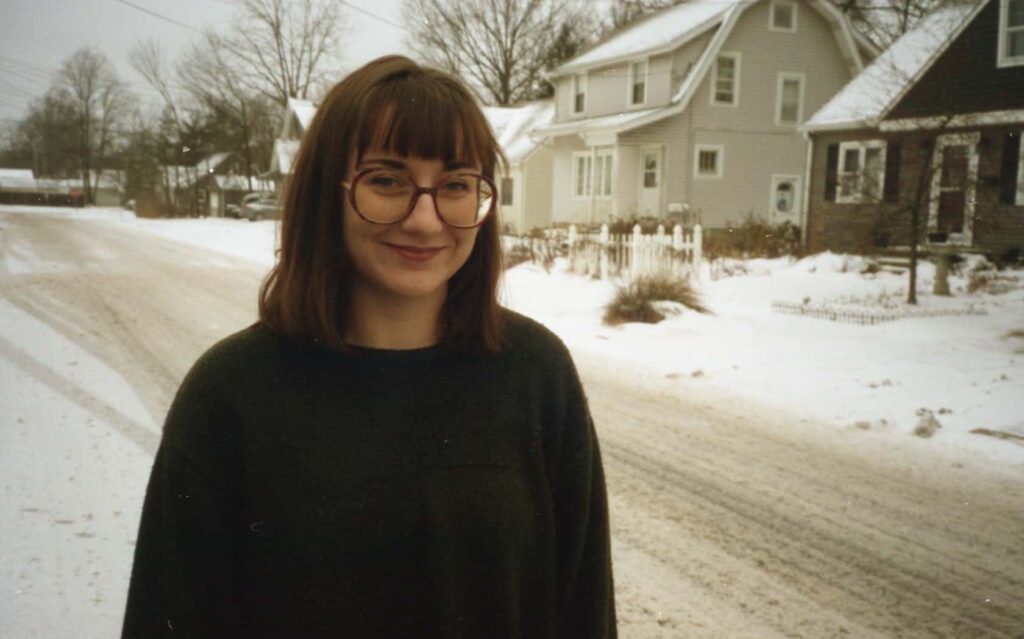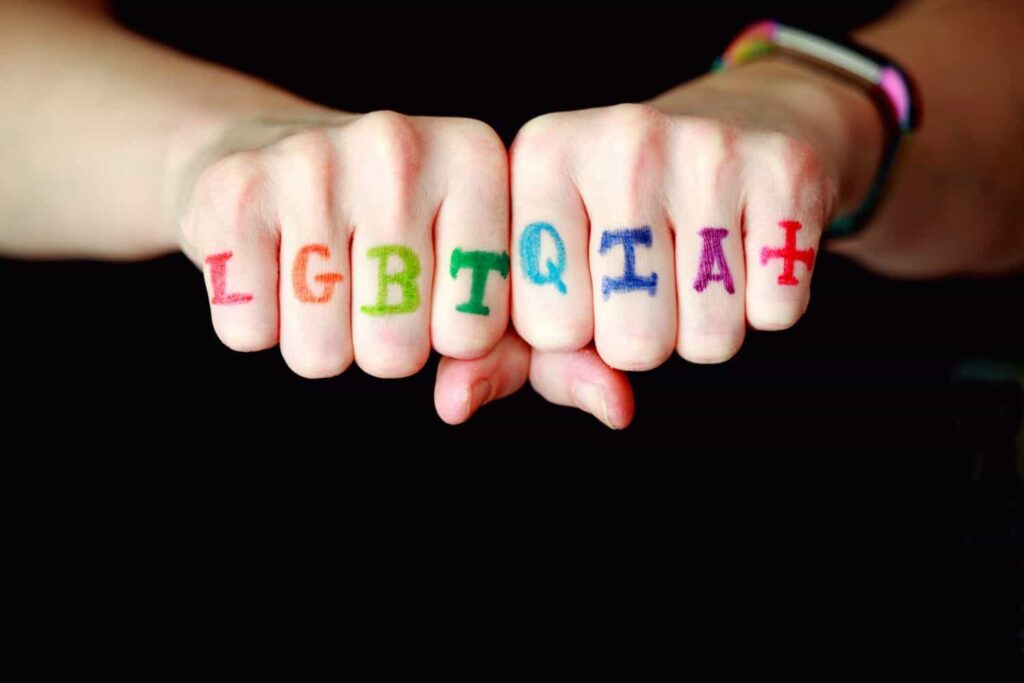
If you are interested in a career as a speech pathologist in the US, you know you need a graduate degree to practice. With so many speech pathology programs across the country, it can be hard to find the right school for you. At Emerson, we have a clinical buddy program that allows undergraduate students to observe graduate students’ sessions with clients. This buddy program is a unique chance for both graduate and undergraduate students to grow their clinical skills.
In today’s blog, we’ll hear from Monica, an undergraduate Communication Disorders student, and me, Olivia Wachtel, a graduate student writer for this blog and second-year student in Emerson’s Communication Disorders MS program. We’ll share our experiences in the buddy program and what we learned through the process.
Meet Monica and Olivia

Monica:
Originally from Seattle, Monica Apreutesei is currently a senior undergraduate student at Emerson. Monica is double majoring in Communication Disorders (BS) and Musical Theatre (BFA). She will graduate in spring 2025 and is beginning to apply for graduate schools for speech pathology.
Olivia:
Olivia Wachtel is a second-year graduate student in Emerson’s Communication Disorders MS program. She graduates in late August 2024, after which she will be a full-time speech pathologist at a specialized school in Chelsea, Massachusetts.
Who can join the clinical buddy program?
Emerson’s clinical buddy program pairs a second-year graduate Communication Disorders student clinician with a senior undergraduate Communication Disorders student.
To participate in the program, the graduate student must have a clinical placement in the Robbins Center. The Robbins Center is Emerson’s on-campus community clinic. Here, graduate students provide services to community members with communication concerns.
Second-year graduate students have external clinical placements, but they can request additional clients in the Robbins Center. If a second-year graduate student chooses to have clients in the Robbins Center, their supervisor my nominate them to participate in the buddy program.
For undergraduate students to participate in the buddy program, they must have senior standing and write a letter of interest. From there, the department reviews applications and pairs selected undergraduate students with graduate students.
What does the program look like?
Once the undergraduate and graduate students are paired, the undergraduate student observes the graduate student’s weekly sessions. Week to week, the graduate student shares their treatment plans with the undergraduate student and makes themselves available to answer any and all questions.
The graduate student’s clinical supervisor may challenge the undergraduate student to practice taking data, writing a treatment plan, or participating in a session. Olivia’s clinical supervisor, Jocelyne Leger, worked diligently to make the buddy program feel productive for both Olivia and Monica.
How did you hear about the program?
Monica:
Monica first heard about the program through a department email her junior year. Curious about the program, Monica asked a senior in one of her classes about their experience. The classmate strongly recommended the program, so Monica thought she would apply. “The program is reserved for senior undergraduates. I was technically still a junior, but I had senior standing, so I wrote a persuasive letter of interest and they let me join,” Monica explains.
Olivia:
Olivia also first heard about the clinical buddy program via email. “In the spring of 2024, our Director of Clinical Programs, Lynn Conners, emailed me that I had been nominated as a graduate buddy for this program,” they explain. That semester, Olivia was scheduled to work with a client in the Gender Affirming Voice and Communication (GAVC) program. In this program, graduate student clinicians work with clients to find a voice that feels authentic to them and their gender identity. Because Monica expressed interest in voice and the GAVC program in her application, Lynn paired her with Olivia.

How would you describe your experience in the clinical buddy program?
Monica:
“It was awesome,” Monica says. “I have a busy schedule, but coming to weekly sessions was the highlight of my week. I would 100% recommend it!” She also recalls feeling appreciated in the program. “The fact that my opinion mattered to Jocelyne and Olivia was huge.”
Olivia:
“I would also highly recommend the clinical buddy program to graduate students,” she says. “Having an undergraduate buddy is a great way to build mentorship skills.” Each week, Olivia sent her session plans to Monica and Jocelyne. She also came early to sessions in case Monica had any ideas or questions. “Whenever Monica asked questions, I got practice explaining clinical concepts, and she often made observations that helped me plan better for following sessions,” Olivia explains. “This was such a great learning experience for me.”
What was something that surprised you about the clinical buddy program?

Monica:
“I didn’t think I’d be able to go into the room with the client,” Monica says. In the first half of the semester, Monica observed sessions with Jocelyne and took notes. Toward the end of the semester, she joined in a few games and activities with Olivia and the client. “It was a great way to dip my toes in,” she adds.
Olivia:
Olivia was pleasantly surprised to get paired with an undergraduate with a background in voice. Coming into the clinical buddy program, they didn’t know that an undergraduate student’s clinical interests factor into the pairing process. Working with someone else who was also passionate about voice and gender-affirming care was a blast for them.
What’s next for you?
Monica:
Currently, Monica is in the process of applying for graduate schools. After graduating in the spring of 2025, she wants to continue studying both communication disorders and the arts. She explains, “Right now I’m looking at schools in New York, LA, and Boston, so I can study film and art.”
While she is still early in the process, Monica is considering Emerson for graduate school, noting how important it is that they have a GAVC program. “I grew up with an amazing group of queer folks, and I’ve seen how important gender-affirming care is. As I look at more graduate programs, I’m realizing that Emerson having a gender-affirming program is pretty spectacular.”
Olivia:
Olivia will graduate at the end of August 2024. After this, she will be working full-time in Chelsea, MA, at a specialized school for students with higher support needs.
For more information about the clinical buddy program and Emerson’s Communication Disorders MS program, schedule a call with the department. To hear the experience of current students in the program, visit our Communication Disorders blog page.


Leave a Reply